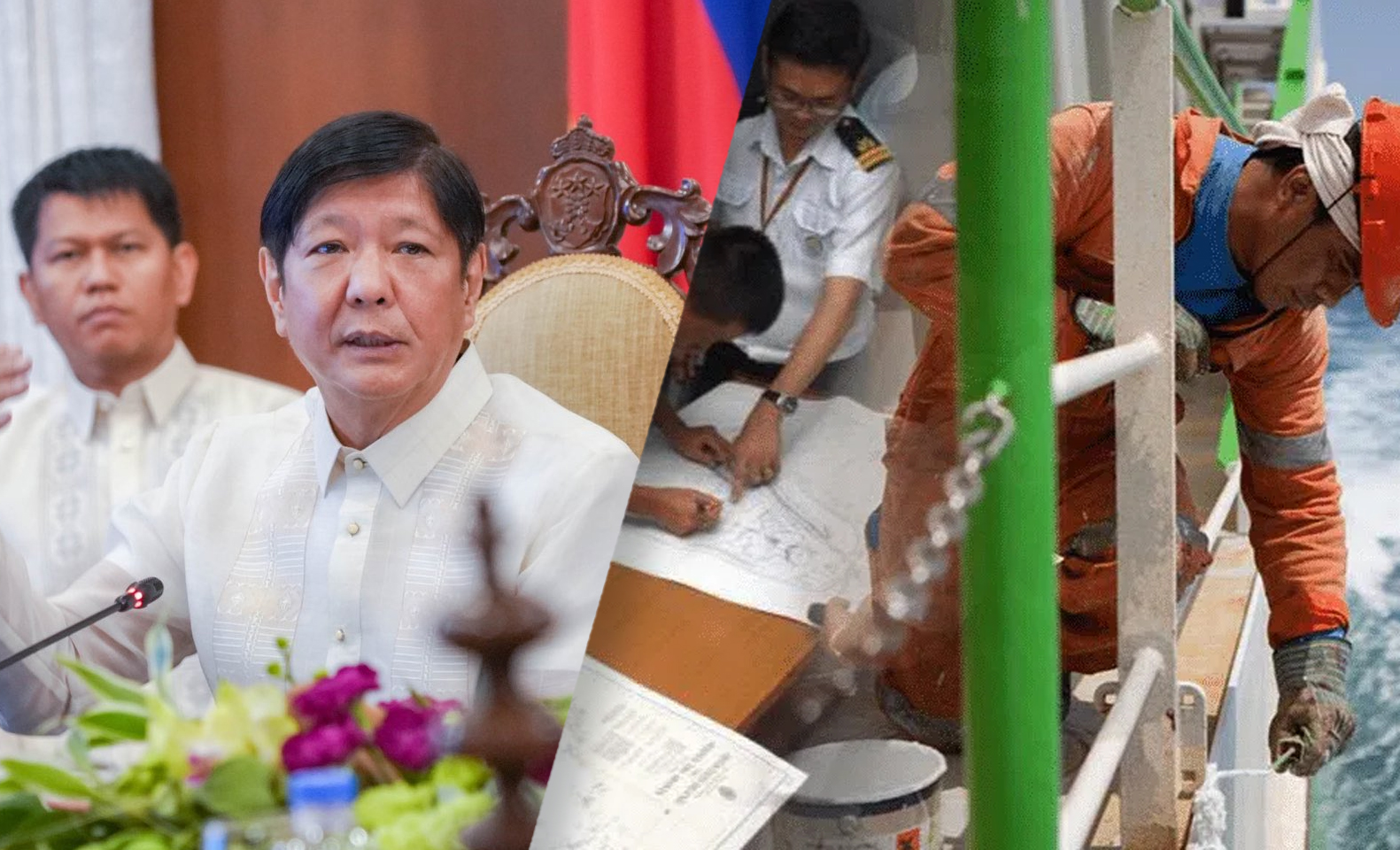Upgrade PH maritime industry, align with global standards --- Marcos
At A Glance
- "We have to fix our house first. Because we have to compete, and in order to do that, we should have an even playing field, and then we should gain an advantage," Marcos said.
President Marcos has directed the Maritime Industry Authority (Marina) to upgrade the Philippine maritime industry and align it with global benchmarks.

In a briefing in Malacañan, Marcos told Marina chief Sonia Malaluan that many of the rules and operations in the maritime industry are obsolete because of the lack of a unified system governing the industry.
He said it was imperative first to provide a standardized system following international systems before implementing any proposed programs.
"These are all promotion and modernization, but let us standardize first our systems, and at the same time, we undertake this like promotion of highly skilled Filipino maritime workforce," Marcos said on Wednesday, Jan. 17.
"[For the] shipbuilding and ship repair, we haven't done much to promote that. The rest are for further development. So let's standardize our practices so that we will be the same as our international counterparts," he added.
"We have to fix our house first. Because we have to compete, and in order to do that, we should have an even playing field, and then we should gain an advantage," he continued.
During the briefing, Malaluan reported and sought Marcos' approval on the proposed Maritime Industry Development Plan 2028 (MIDP 2028), which aims to build a robust and reliable Philippine Merchant Fleet, addressing the sea requirements of the country in support of the national development agenda.
Its core programs include the modernization and expansion of Philippine domestic shipping, the promotion and expansion of Philippine overseas shipping, the modernization of the Philippine shipbuilding and ship repair industry, and the promotion of highly skilled Filipinos and a competitive maritime workforce.
Expensive domestic shipping
Meanwhile, President Marcos compared the high cost of shipping in the country to other countries like Hong Kong, where shipping cargo to the Philippines from abroad is usually cheaper than locally.
According to Malaluan, one of the reasons behind the expensive domestic shipping is the imposition of excise tax on fuel. She said any ship that travels internationally is not subject to excise tax on fuel. In the Philippines, domestic shipping carries an additional fuel tax.
Another reason is the quality of the Philippiines' vessels, particularly old fleets, making them inefficient. Malaluan said there is also a lack of interest from investors to put money in the local shipping industry.
She raised the need to change the current maritime policy wherein the government still allows 20-year-old passenger ships to operate and 25-year-old vessels to haul freight.
Because of this, President Marcos said the problems and challenges cited by the Marina chief stressed the need to standardize operations and practices in the maritime industry so that proper programs are implemented.
"Let's standardize and also prioritize in terms of the immediacy of some of these," he said.
Marina was created in June 1974 to integrate the Philippine maritime industry's development, promotion, and regulation.
Among the agency's primary goals is to lead a progressive maritime administration that ensures the safety and security of life and property at sea, the protection of the marine environment, and the global competitiveness of the Filipino maritime workforce.